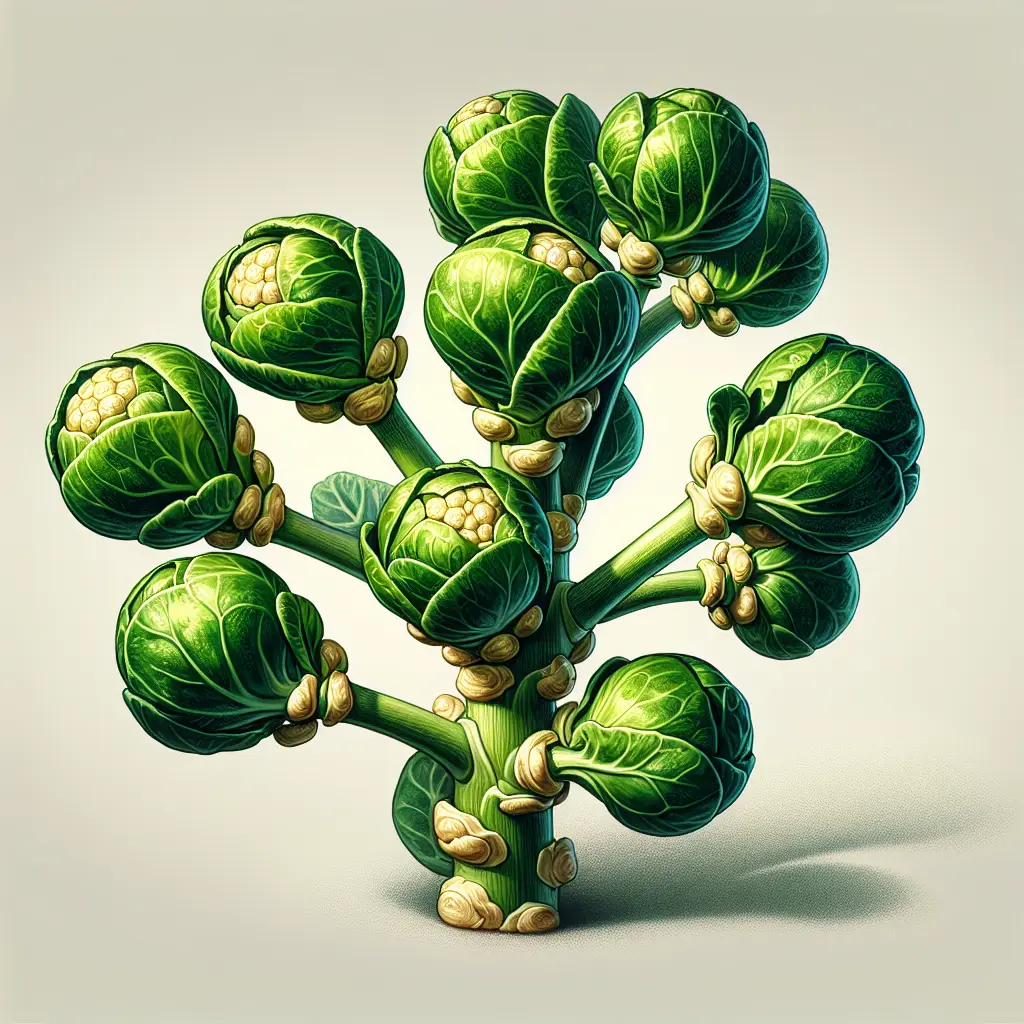Brussels Sprouts: A Nutritional Powerhouse
Brussels sprouts, members of the cruciferous vegetable family, are miniature cabbages renowned for their impressive nutritional profile. Despite their modest calorie count of 60 per 8 sprouts, they are packed with an array of essential vitamins, minerals, and antioxidants.
- Vitamins and Minerals: Brussels sprouts are a rich source of vitamins C and K, as well as folate, potassium, and manganese. Vitamin C is crucial for immune function and collagen production, while vitamin K is essential for blood clotting and bone health. Folate is vital for cell growth and development, and potassium supports healthy blood pressure and muscle function. Manganese is a cofactor for various enzymes involved in metabolism and antioxidant defense.
- Antioxidants: Brussels sprouts contain a wealth of antioxidants, including vitamin C, beta-carotene, and sulforaphane. These compounds combat free radicals, reducing oxidative stress and protecting cells from damage. Sulforaphane, in particular, has been linked to cancer prevention and anti-inflammatory effects.
- Fiber: Brussels sprouts are an excellent source of dietary fiber, with 4.4 grams per 8 sprouts. Fiber promotes digestive health, satiety, and blood sugar control.
Culinary Versatility
Brussels sprouts offer remarkable versatility in the kitchen, lending themselves to a wide range of cooking methods and flavor pairings. Here are some popular ways to enjoy this nutritious vegetable:
- Roasted: Roasting intensifies the natural sweetness of Brussels sprouts and caramelizes their edges. Simply toss them with olive oil, salt, and pepper, then roast at 425°F (220°C) for 20-25 minutes.
- Sautéed: Sautéing Brussels sprouts in a pan with garlic and herbs creates a quick and flavorful side dish. Add bacon or pancetta for extra savory depth.
- Steamed: Steaming Brussels sprouts preserves their vibrant green color and delicate texture. Serve them with a drizzle of lemon juice and a sprinkle of Parmesan cheese.
- Grilled: Grilling Brussels sprouts over medium heat gives them a smoky flavor and a slightly charred exterior. Brush them with a balsamic glaze or a simple vinaigrette for an elegant touch.
- Salads: Brussels sprouts add a crunchy and nutritious element to salads. Shave them thinly or slice them into quarters and combine them with other greens, vegetables, and fruits.
In conclusion, Brussels sprouts are a nutritional powerhouse that offers a myriad of health benefits. Their versatility in the kitchen makes them a culinary delight that can be enjoyed in countless ways. Embrace the goodness of Brussels sprouts and incorporate them into your diet for a nutritious and flavorful experience.
How many calories are in Brussels?
Each 8 sprouts of Brussels contains 60 calories.
Brussels Nutritional Information
| Nutrient | Amount per 8 sprouts (168g) |
|---|---|
| Calories | 60 Calories |
| Protein | 4.3g |
| Fat | 0.8g |
| Saturated Fat | 0.2g |
| Cholesterol | 0mg |
| Carbohydrates | 12g |
| Dietary Fiber | 4.4g |
| Sugar | 2.9g |
| Sodium | 0.035mg |
| Potassium | 0.5326mg |
| Calcium | 0.06mg |
| Iron | 0.002mg |
